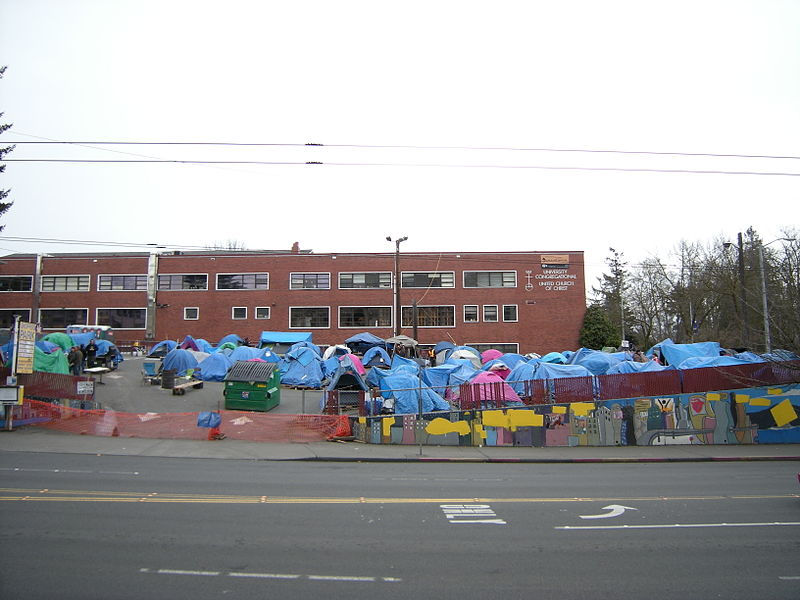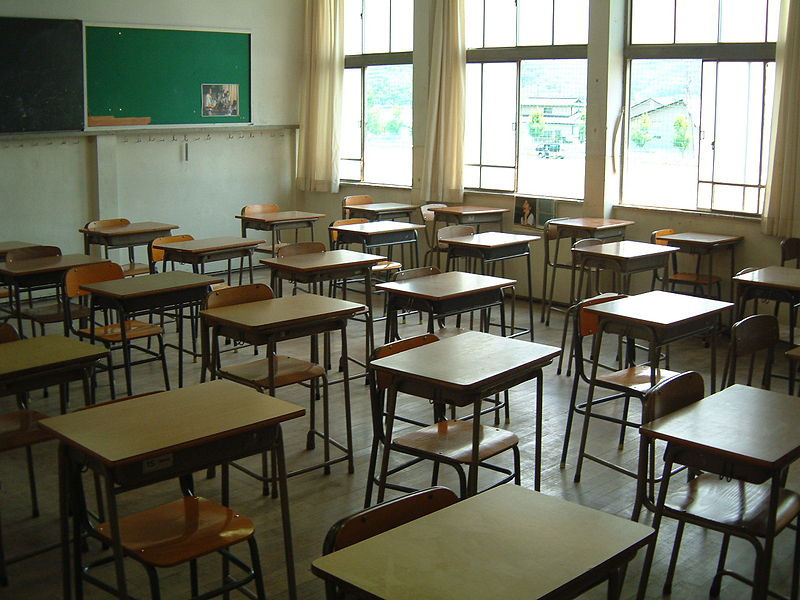Things you should not say to a depressed college student this holiday season
- Asia Rollins

- Dec 3, 2019
- 4 min read

cogdogblog, CC BY 2.0 <https://creativecommons.org/licenses/by/2.0>, via Wikimedia Commons
12/3/2019- The story below is an opinion piece written during a news writing and reporting class. The story explores the realities that many depressed college student face when going home for the holiday season.
College is supposed to be a time filled with new opportunities and self discovery. American society has tricked young adults into believing that if their college experience is not filled with happiness and frat parties, then they are doing something wrong. However, the reality is that many American college students are depressed, and attending school can feel like a daily battle of keeping their heads above water.
Depression is one of the most common mood disorders in America that affects young adults from all walks of life. Eighty percent of college students feel overwhelmed because of the responsibilities and expectations that are placed on thrown at them, according to The National Alliance on Mental Health. Feeling overwhelmed can lead to feelings of anxiety which can in turn lead to episodes of depression.
In a survey released in 2017, 17.3 million adults in the U.S. had at least one major depressive episode, according to the National Institute of Mental Health. Young adults between the ages of 18 and 25 had the highest rates of depressive episodes.
Since depression is a common problem among college students, there is a possibility that you will come into contact with one during your holiday celebrations. Even though you might want to be nosey and ask personal questions, it is important to be sensitive to the fact that you might be talking to a college student with depression. Living with depression has the power to be crippling, so if you notice some changes in a college student within your family keep quiet because certain topics are off limits.
While you are enjoying your favorite pies for dessert and the itis is taking
over please do not talk about how fun and exciting your college experience was. Bringing up how many parties you went to or how involved you were on campus sparks feelings of guilt in depressed students.
Instead of going on and on about your golden college years, ask them how school is going. They might reply with the common answer of “everything is going fine,” but do not ask them why they aren’t excited to tell you about their new significant other or how they’re involved in five new organizations.
There’s no secret that school can be stressful. Weekly deadlines, relationship problems, roommate conflicts and lack of sleep can make getting good grades challenging. Even for mentally healthy young adults, the demands of colleges can be overwhelming. When episodes of depression are thrown into the mix of college life, getting through daily tasks is even more difficult.
When symptoms of depression creep up on students they might want to just stay in bed. Attending classes is a huge effort and picking out outfits to wear for parties is their last priority.
Comments about drastic changes in weight are not appropriate. There is a possibility that the depressed college student you know has either lost or gained a significant amount of weight within a short period of time. Depression is a mood disorder that causes changes to a person’s appetite, according to the Mayo Clinic Staff. These changes can cause some depressed people to not have the desire to eat balanced meals or overeat to cope with mental exhaustion.
Unless someone shares with you their diet secrets about how they have lost or gained weight, it is rude to make comments about someone’s physical appearance when you notice a drastic change. The depressed person is probably fully aware of their appearance and it is not your place to ask them about their pants size.
Remember how annoyed you were when your aunts kept asking when you were going to start dating? Well, the relationship question is even more unbearable for depressed college students.
Relationships in college are difficult because often times your relationship status has to do with your looks. Students who are depressed do not always have the time and energy to keep up with their appearance or stay healthy. An unkempt appearance in general but especially in college can put you on the bottom of the dating totem pole.
For the purpose of this article the best was saved for last. Asking a depressed college student about their grades is one of the worst things you can do. When people have episodes of depression it can be difficult to remember things, concentrate and make small discussions, according to an article published by the Mayo Clinic Staff. They are trying their best and the last thing they need to hear is how much better their older sister did in college.
The Mayo Clinic staff also states that depression is linked to lack of energy which makes doing homework for over 5 classes an almost impossible task. Instead of asking how a student’s grades are you could just simply ask them how they like their professors. The person might feel less attacked since you’re not coming out and asking them whether or not their failing. It is possible that when the student talks about their professors they will open up and tell you about how the class is going, but asking about grades feels like an attack to a depressed student.
Now you can avoid awkward conversations since you are aware of what not to ask a depressed college student. The holidays are a time when family and friends come together after long periods of not seeing each other. There is a strong possibility that the college student you know might have changed in some aspects of their life since you last saw them. One of the changes could be depression and asking certain questions during a time that is supposed to be enjoyable can ruin a fun season.



Comentários